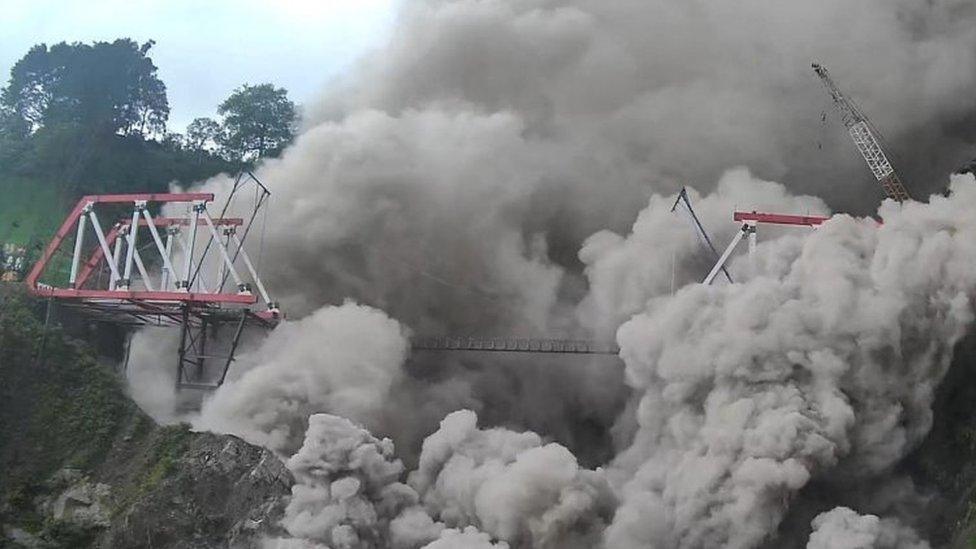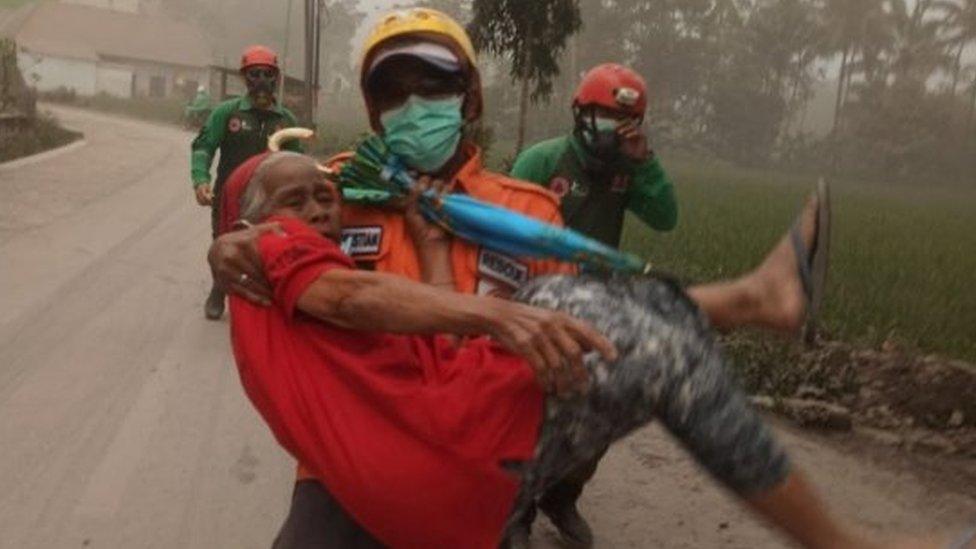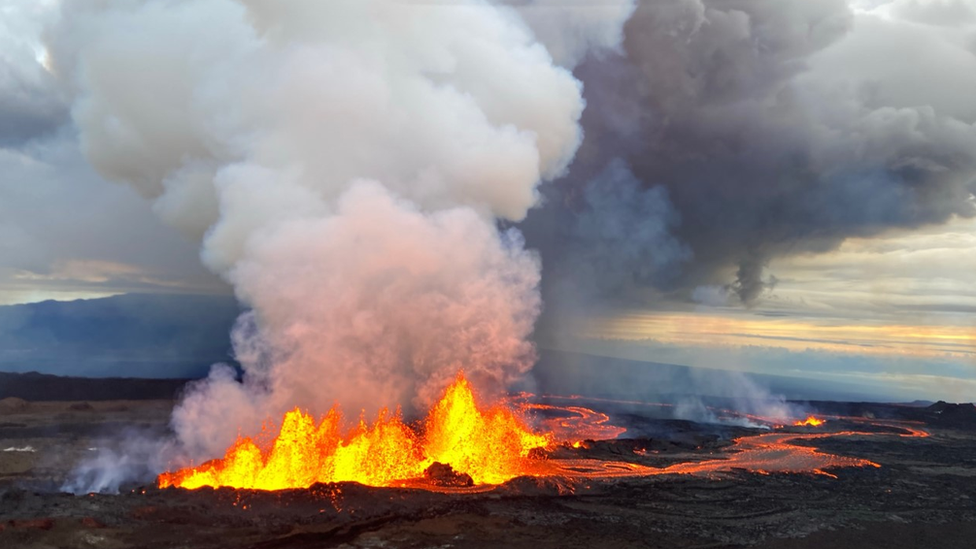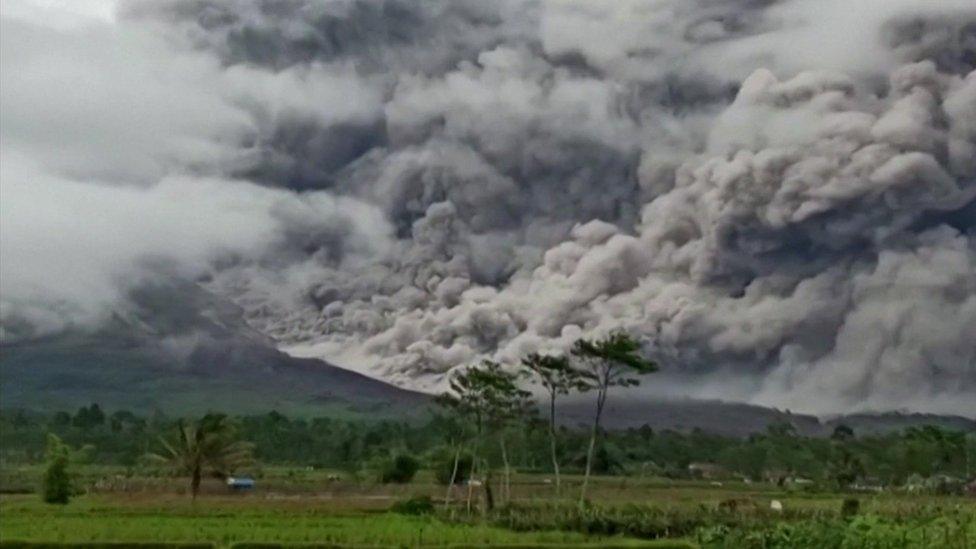Mount Semeru: Indonesia raises alert to highest level as volcano erupts on Java island
- Published

The Gladak Perak bridge, rebuilt after last year's eruption, was badly damaged
Indonesia's Mount Semeru volcano has erupted, sending ash billowing into the sky and sparking evacuations on the country's main island, Java.
Authorities raised the volcano's warning status to the highest level, meaning its activity had escalated.
No injuries have been reported but nearly 2,000 people were evacuated from the area around the volcano.
People have been urged to keep at least 8 km (5 miles) away, as "hot avalanches" of lava poured from Semeru.
The increased threat level from three to four also means the danger threatens people's homes, a spokesman for Indonesia's Center for Volcanology and Geological Hazard Mitigation (PVMBG) told a national broadcaster.
The organisation said a bridge being rebuilt after a previous eruption had been badly damaged.
Volcanic ash mixed with monsoon rain was falling on nearby villages and 1,969 people, including children and seniors, had been evacuated, the National Disaster Mitigation Agency (BNPB) said.
At least six villages had been affected, it added.

Residents of six villages were evacuated by rescuers
Videos of the event showed the sky turning black as a massive plume of ash blocked the sunlight.
Japan issued a tsunami warning for its southernmost islands after the eruption, but meteorologists said no tidal changes had been observed.
Mount Semeru, in East Java province, began erupting at about 02:46 local time (19:46 GMT), authorities said.
Indonesia sits on the Pacific "Ring of Fire" where tectonic plates collide, causing frequent volcanic activity as well as earthquakes.
Semeru - also known as "The Great Mountain" - is the highest volcano in Java at 3,676m (12,060ft) and one of the most active. Its last erupted exactly one year ago, killing at least 50 people and leaving streets filled with mud and ash.
The eruption also follows a series of earthquakes on the west of Java island, located about 640 km (400 miles) east of Indonesia's capital Jakarta, including one last month that killed more than 300 people.
- Published23 November 2022

- Published1 December 2022

- Published16 January 2021
